What Is Sumac?
Apr 17, 2012, Updated Feb 22, 2024
This post may contain affiliate links. Please read our disclosure policy.
Sumac is one of my favorite Middle Eastern spices of all time, and I make sure I always have some in the kitchen. It has a tart, citrus-like flavor with sweet and earthy notes, adding a beautiful and appetizing pop of red to your dishes.
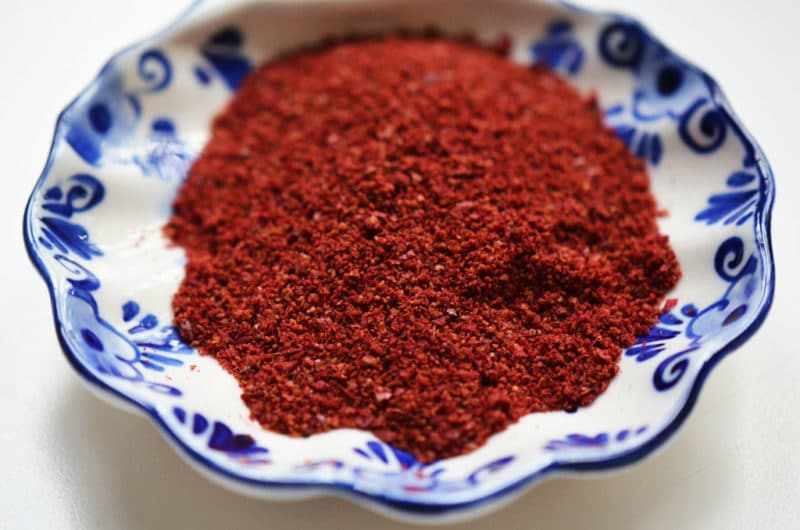
Table of Contents
What Is Sumac?
Sumac is a spice popular in Middle Eastern cuisine. It is a red and tangy spice that’s made from pulverized dried sumac berries. Ripe berries are dried and ground before the bitter seeds are picked out.
Although it’s most popular throughout the Middle East, the plant is grown in Sicily, Turkey, and some parts of Iran.
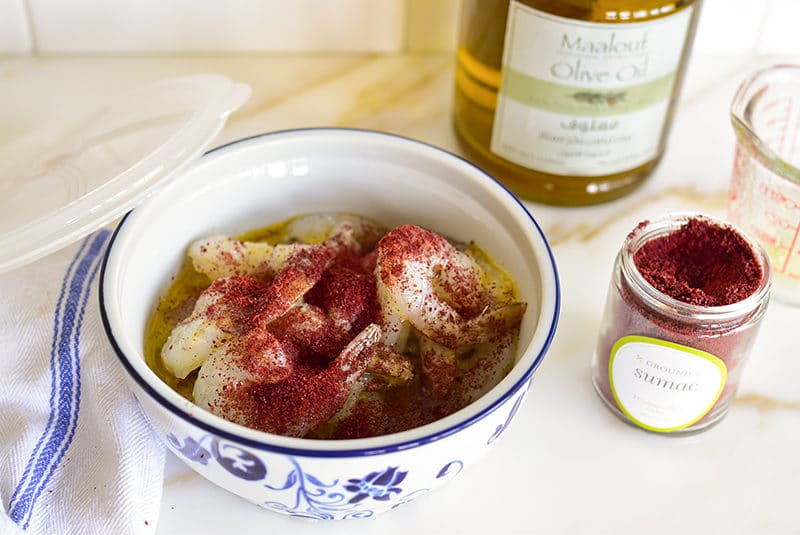
What Does It Taste Like?
Sumac has a flavor that is tangy, lemony, and bright. It has a sour punch like fresh lemon juice, with a mild fruity sweetness.
Cooking With Sumac
Sumac can be a garnish, giving a shake of lemony flavor to homemade hummus. My favorite way to use this spice is in a fattoush salad. It is simply a must-have ingredient in fattoush salad vinaigrette and as a finishing spice in the salad.
This special spice also goes beautifully with vegetables and meats. You can add it to a marinade before grilling some chicken or pork, or in this roasted sweet potato recipe. The tangy flavor cuts through rich flavors, so it’s the perfect match to any dish that you would typically pair with lemon.
You can even add sumac in baked goods and desserts! Add it to baked spinach fatayer or koosa fatayer (zucchini pies) to replace lemon juice which can cause the pies to get too moist and open up. Try it in your chocolate brownies, or olive oil cake for a delicious treat.

Where to Buy It
You can buy sumac spice in my online shop! I find our 3.2 ounce jars are the perfect size, because any bigger and it may not get used up all that quickly. Spices are best bought in smaller quantities so they stay fresh and aromatic.
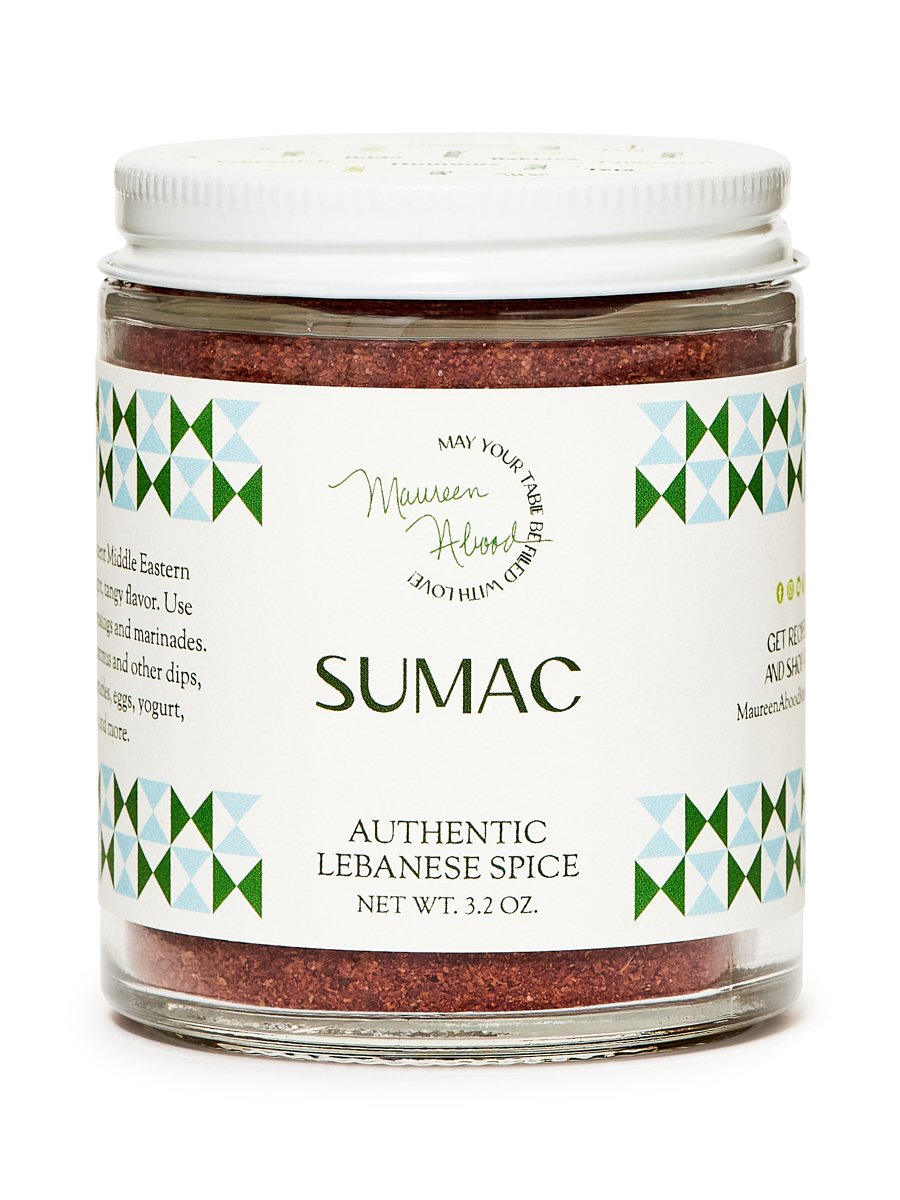
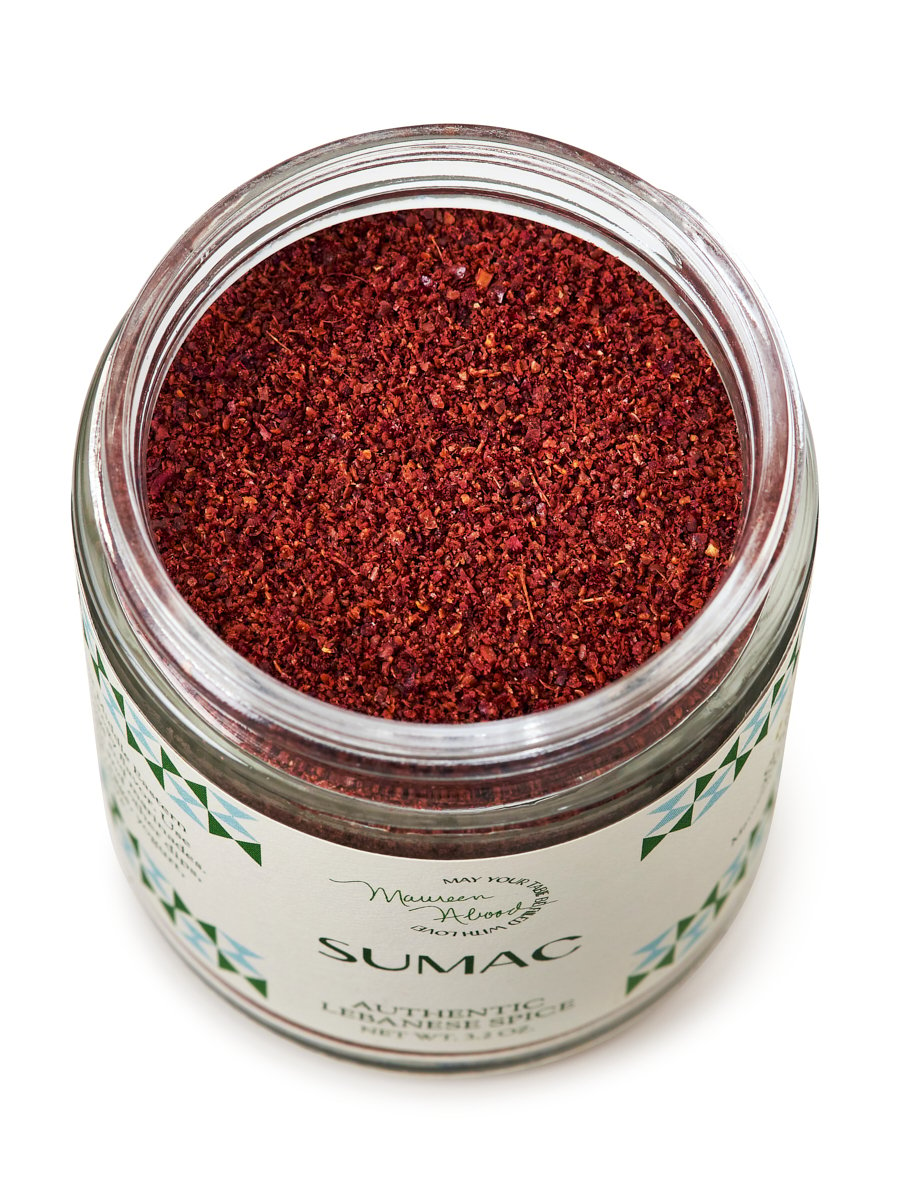
You can also find it sold in Middle Eastern stores, and some grocery stores in the spice aisle or international food section. Check the ingredients to make sure your jar only includes the spice, and food coloring or citric acid haven’t been added to bump up the flavors and color.
What Is a Good Substitute for Sumac?
As sumac is quite a unique spice with depth of flavor, it can be a little difficult to replace with just one spice. That said, you can use lemon zest, lemon juice, lemon crystals, or lemon pepper. However, these are all much more sour, so they should be used sparingly.
You can also use za’atar, as this spice blend includes sumac in its ingredients. Some claim that you can use dried hibiscus as a substitute as they’re both colorful and tangy, but hibiscus is sweeter in comparison.
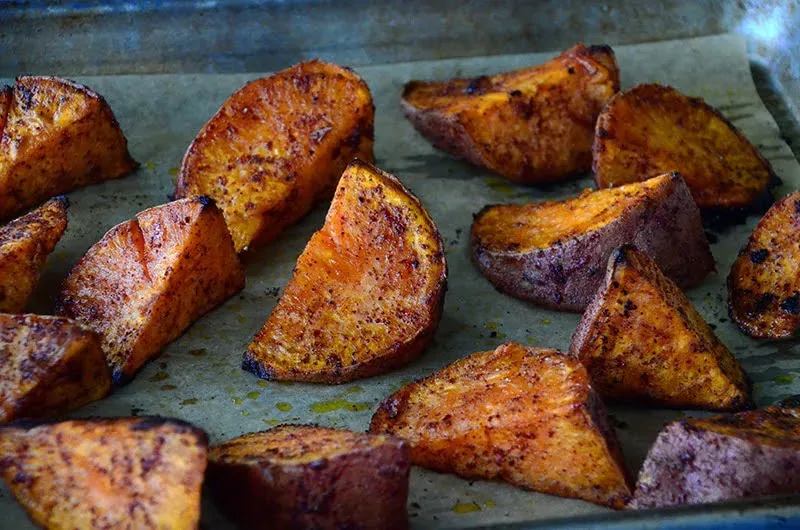
Recipes
Here are some recipes that highlight the flavor of sumac:
- This grilled shrimp recipe is quick and easy to make, yet serves bold flavors!
- Sumac is a key ingredient in both this Lebanese fattoush salad and this roasted chicken fattoush salad.
- My favorite Lebanese salad dressing belongs on nearly every salad you make!
- Sumac makes this crustless quiche so unique and flavorful.
- Try the spice on Sumac Roasted Sweet Potatoes for a nice balance of flavors.
How To Store It
Sumac should be stored in an airtight container in a dark and cool place. While the ground spice can last for several months, the dried whole berries can last up to a year.
What sumac is poisonous?
Some sumac plants are poisonous. These poisonous plants grow in damp areas in North America and can give you an itchy rash if you touch it, as the entire plant contains the toxin urushiol.
To tell the poisonous plant apart from the edible kind, keep in mind that the poisonous plant produces white berries, while the edible berries are a deep red.
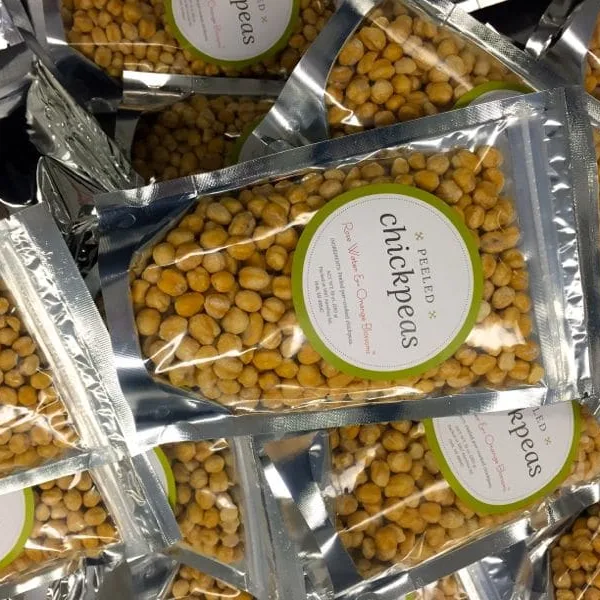
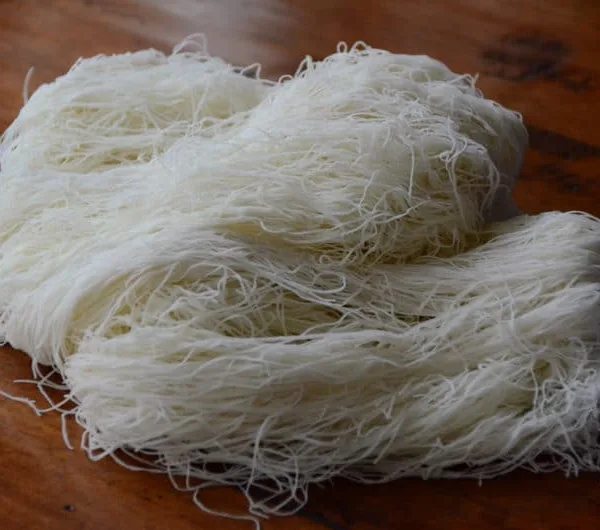
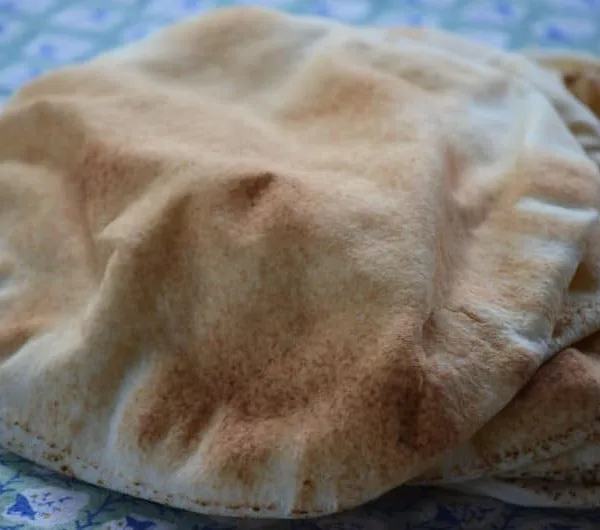
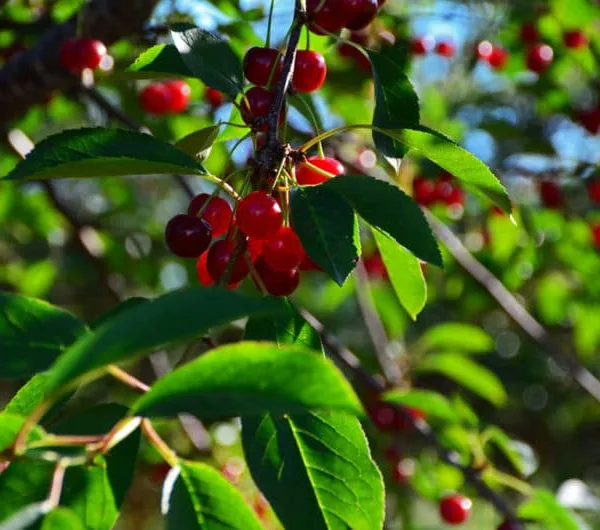







I brought some sumac back with me from when I was in Turkey. I recently made blood orange eclairs wirh cranberry glaze, and finished them with a dusting of sumac. The flavors worked really well together. The smoky citrus of the sumac paired wonderfully with the blood orange and the cranberry.
Wowwww, your eclairs sound just beautiful and delicious. What a clever use of sumac. Thank you Erin!
I want to add some Sumac to a pickling (ACV/white vinegar mix) brine recipe. To a half gallon of brine, about how much ground Sumac do you recommend?
Thanks!!!
Barb
Nice idea Barb! I would use 2-3 tablespoons sumac.
Thank you so much for sharing. Where can I go to purchase sumac from you?
Thank you Jennifer! You can find my sumac here and in the shop link in this site’s upper navigation. Great sumac, you will love it!
Very interesting thank you
Oh good Donna, thank you–sumac is a wonderful spice to keep handy to brighten all kinds of dishes!
Looks like the drink is fairly common at least with a search of the net. I guess it was a Native American drink.
https://www.grouprecipes.com/46734/indian-lemonade.html
Ingredients
1 quart of sumac berries
1 gallon water
maple syrup or honey (to taste, optional)
How to make it
Bring water to a boil
Place sumac in a large teapot or non-metal container
Pour boiling water over the sumac
Steep for 20minutes – 2 hours
Strain through cheesecloth or a coffee filter
Enjoy over ice
And there it is!! Thank you!
New spice to me! Sounds
Interesting.
Barbara, sumac really is an interesting and delicious spice. I LOVE it in salads and marinades, playing a similar role as lemon but adding additional complexity in the best way.
Euell Gibbons (don’t know if you’re old enough to remember him) talks about sumac berries in “Stalking the Wild Asparagus” p. 91 in conjunction with making elderberry jelly. He mixes half and half. Also uses it for drink but doesn’t say how much sugar to put with it. I know I’ve done it before back when he was popular but don’t remember the exact formula I came up with. He talks of pounding the berries, but I remember putting them in a blender then straining them.
You are one fascinating dude, Roger!!!! If you make this, please keep me posted…..
Is the wild sumac the same stuff so one could make their own? The seeds from the wild so make a good interesting drink.
I believe so Roger! The drink does sound interesting. My friend Cindy asked if a kind of lemonade is made with sumac, so this must be the drink. Citrus-y.
Maureen,
you know the feeling like when you see something and you instantly know you won’t have peace until you find it?
🙂
Tlaz
Yes, yes!!